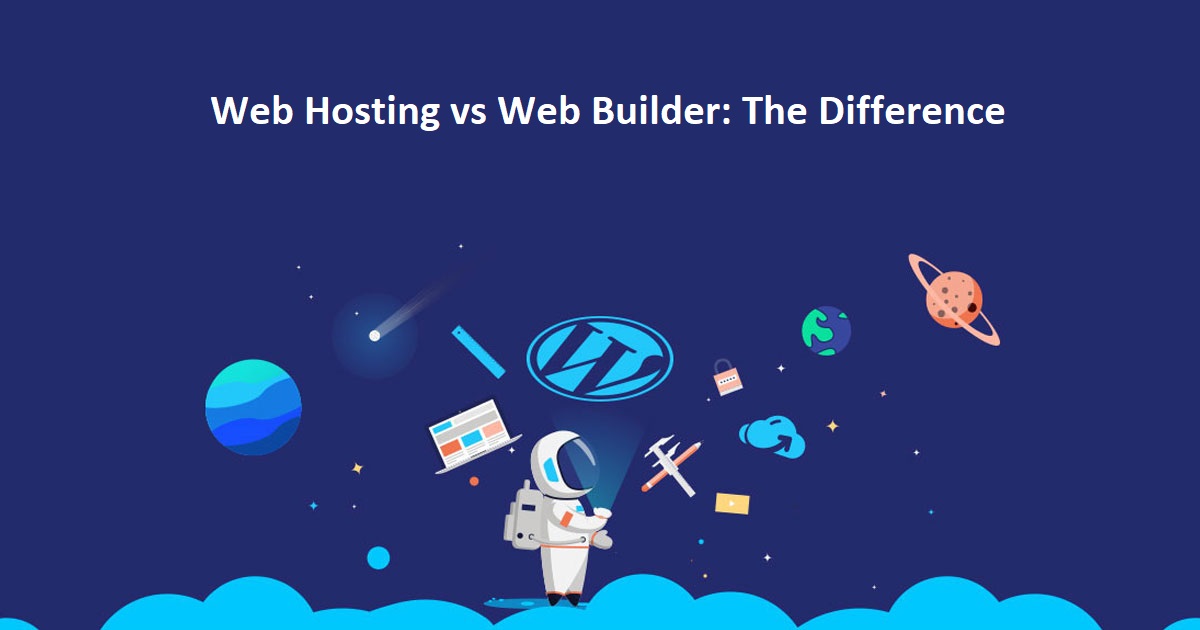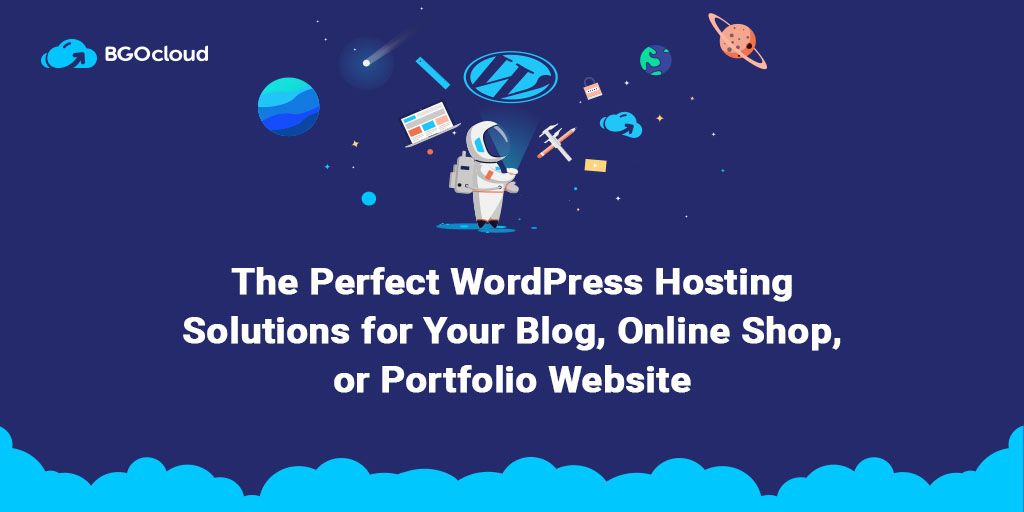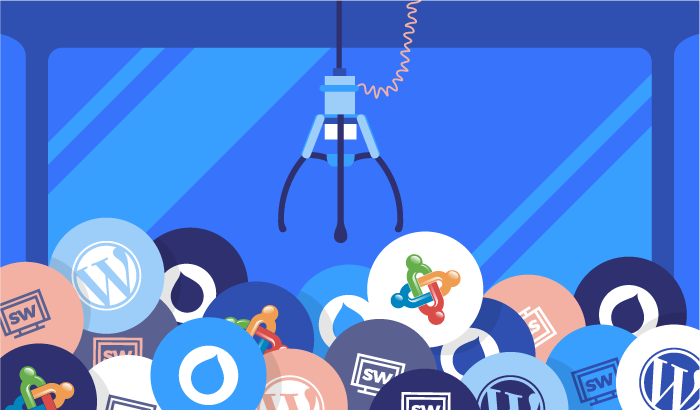Web Hosting vs Web Builder: What’s The Difference?

Are you about to start your website? Have you searched the whole Internet for tips and tricks, differences between this and that, or the things/platforms/services to start with? Well, chances are you’ve bumped into the following terms couple of times already – web hosting vs web builder.
So, what is the difference between web hosting vs web builder? Which comes first? And do you need both for your website? This article will provide the answers.
Let’s get started.
What Is Web Hosting and A Web Hosting Service
Web hosting is a general term that refers to all types of hosting solutions for the web. Basically, a web host provides internet connectivity to your website. It allocates space on a server for it, letting you store and place all the files for your website in a reliable environment and in a secure way. In other words, with web hosting services you make it possible for your website and web content to live on the Internet, allowing search engines and page visitors to find it.
There are several types of web hosting to choose from depending on your needs, ideas, business, website scalability needs, users, data to be shared, expected page visitors, resources to be used like CPU, storage space, bandwidth, RAM, and so forth.
At BGOcloud, for example, you can find flexible hosting plans and solutions that can make visible any business idea or creative undertaking. We’ve packed all types of hosting solutions, including WordPress hosting for blogs and other websites, hosting for Joomla-based websites, optimized Magento hosting solution, Drupal hosting. There are also High-Performance VPS Hosting Plans at an affordable price, global-wide MikroTik VPS, Dedicated servers, and even a Domain Name Configurator.
If you want to find more information about all the things that distinguish us from other hosting providers, read BGOcloud Benefits: Bring the Best Value For Your Money Through Hosting Services.
What Is Web Builder and How Does It Work?
Web builder or an app builder is a software solution that enables you to easily and quickly create your website. One of the biggest benefits of using a web builder/app builder is that it doesn’t require any previous technical or programming know-how. You can start using it even if you’re a newbie, citizen developer, or a blogger. In other words, there is no need to learn JavaScript or master CSS skills, for example.
How is this possible?
Too keep things simple, any comprehensive web builder integrates a modular and reusable system of UI components, enabling you to assemble your website component by component. It also packs visual elements and a design system that matches the UI components, generating pixel perfect application or a complete website within hours.
Most web builders deliver WYSIWYG (What You See Is What You Get) drag & drop experience. Which is great because this way you can inspect your website and instantly see what you are building.
Top Benefits of Website Builders:
- Require no technical knowledge or programming skills
- Adopt intuitive site editors/design systems
- Have user friendly interface
- Come with a drag & drop functionality
- Support for UI components
- Provide ready-made but customizable templates and themes
Disadvantages of Website Builders:
- Customization options are limited and you might be a bit short in choices
- Not all of them are ok for massively scalable projects
- Unlike with some open-source site-building solutions, with web builders you cannot use plug-ins
Do You Really Need The Two Of Them?
When we talk about having a website, there are 5 things you need to do to start it:
- Register your domain name
- Find a web-hosting provider
- Choose a hosting plan
- Have relevant content ready
- Start building your website
So, yes, you do need both of them in one way or another. Especially if you are new to this or don’t have a budget for dedicated website development. It’s impossible to have your website live without a domain name, web hosting, and, well, content to be put out there. Thankfully, nowadays, things tend to get extremely simplified. More people start their website on their own, without necessarily having to rely on a designer and a developer to build it.
You just need a reliable hosting provider and an easy-to-use website builder.

